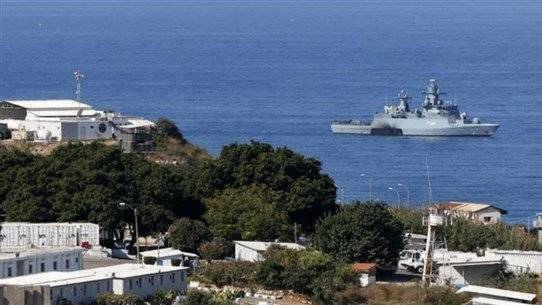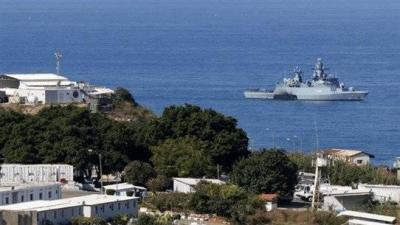Finally, after a long wait, U.S. Ambassador Dorothy Shea delivered the draft of the maritime border demarcation to President Michel Aoun, Parliament Speaker Nabih Berri, and Prime Minister Najib Mikati. This draft was prepared by U.S. mediator Amos Hochstein, without clarification on the reasons for his change in plans to visit Lebanon and assign the ambassador to this task. Following this, President Aoun contacted Presidents Berri and Mikati, and an agreement was reached to hold an expanded meeting in Baabda next week to discuss the Lebanese response to the agreement.
Sources following the demarcation file indicated that there are varied opinions regarding the message. One opinion suggests adopting the Lebanese adage "take and demand," while another advocates for a complete rejection of the agreement, even if it necessitates hinting at withdrawing from negotiations due to fears it deprives Lebanon of much of its oil and gas wealth. Proponents of this view argue that the red line on the map does not include line 23, which is the dividing line concerning water demarcation between Lebanon and Israel. A third opinion posits that the timing of Hezbollah Secretary-General Hassan Nasrallah's calm remarks about the demarcation and his abandonment of threats signifies that this file is linked to lifting the embargo on selling Iranian oil.
Contrarily, sources expect the three presidents to sign the U.S. proposal without objections, as the severity of the economic situation compels them to proceed with the demarcation, believing it will help resolve the crisis. Member of the "Progressive" leadership council and oil and gas law expert Lama Harayzeh, in an interview with "Al-Anbaa," stated that "what matters for Lebanon in this matter is that there are no hidden agendas in the document sent to us, and that we seriously reach a border demarcation, allowing Total to resume work in Block 9 and subsequent operations in Block 8, and that we can invest our resources as quickly as possible." She emphasized that "demarcation is not a mathematical operation; there are agreements and interests among countries, and our interest as Lebanese is to reach an agreement and begin preparations, which may take several months before starting exploration. Both parties, Lebanon and Israel, have no choice but to agree to the demarcation because the option of war is costly."
Harayzeh anticipated Lebanon moving towards demarcation, "provided there are no hidden agendas," outlining three points for the process's success: that Total resume exploratory work directly, start preparing for how to market oil and gas, and take the initiative from the Eastern Mediterranean Gas Forum, which includes Egypt, Israel, Palestine, Cyprus, France, and the U.S.
In response to a question, Harayzeh clarified that demarcation starts from the waters, from point B1, which is the last point on land between Lebanon and occupied Palestine. Therefore, they separated maritime from land demarcation and started from the waters. Lebanon will not have much time to respond to the U.S. proposal, and it seems that the three presidencies will be just as urgent, noting that Israel will begin extracting gas on October 15, which appears to be a decisive date possibly preceding the signing of the agreement if things proceed positively, as mentioned by the American ambassador from Ain al-Tineh yesterday.




